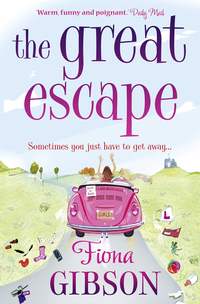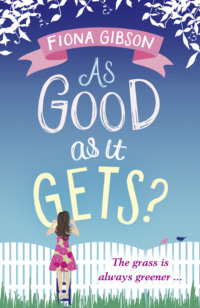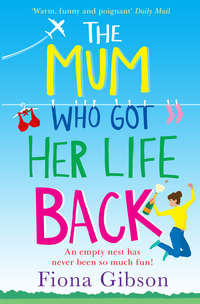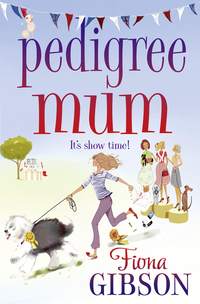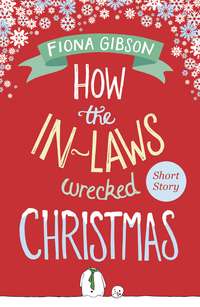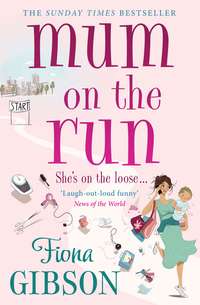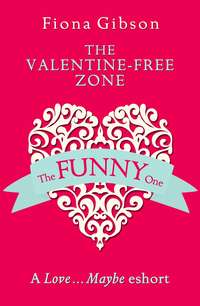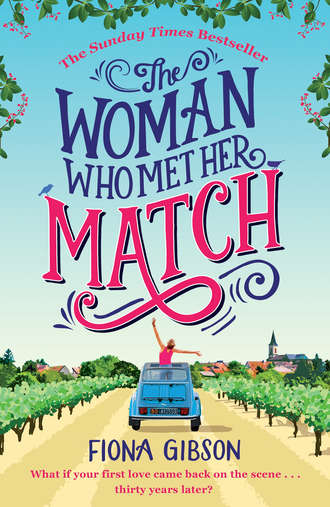
Полная версия
The Woman Who Met Her Match: The laugh out loud romantic comedy you need to read in 2018
Plus, I adore cosmetics and the magical things they can do. Just as when Nicole taught me the ways of make-up in France, I still love the way it can change how a woman feels about herself: with confidence all buffed up, as if given a brisk shimmy with a chamois leather cloth. That’s how I felt as I put on my face before setting out to meet Ralph. Now, though, I realise it was all wrong for a casual date at a gallery on a Sunday afternoon (and I’m supposed to be an expert on make-up!). I’m not a shined-up version of myself. I’m just a tired-looking middle-aged woman who’s too fond of her cake.
Laughter drifts up from the kitchen, where Stu and the kids are bantering away. I sniff my cardigan sleeve. It pongs of that arse-smelling tweed jacket. I whip it off and change into a T-shirt and jeans, tie back my shoulder-length dark brown hair – hair that I not only blow-dried but deep conditioned for my date – and head downstairs to greet my public.
‘So?’ Stu grins at me.
I shrug and start to make coffee. ‘Not good.’
‘What happened?’ Amy asks, still in her basketball kit from training this morning. ‘Was he weird?’
Was Ralph weird, or is it me? I tell them about the un-dead wife, Ralph’s arty pretensions (‘juxtaposed!’) and the fact that the photo he’d used was decades old. ‘It’s so much easier for men,’ I grumble. ‘They just come onto the site and write their own profiles, thinking they have the pick of all us desperate single mums …’
‘No one thinks you’re desperate,’ Stu says with an unconvincing smirk.
‘So what else happened?’ Amy asks eagerly, folding her slender arms. I describe the lobster pots and the outsized jacket while they all stare, agog, as if enjoying a thrillingly diabolical Eurovision performance.
‘What a twat,’ Cam exclaims, chuckling.
‘And he said,’ I add, indignation bubbling up in me again, ‘“You’re obviously a girl who very much enjoys her cake.”’
‘Girl?’ my son sniggers, missing the cake significance entirely.
‘Never mind the girl bit—’ I start.
‘Well, you do enjoy cake,’ Stu teases, his greeny-blue eyes glinting. ‘You’re a cake appreciator. You wolfed that lemon sponge I made last weekend …’
‘Oh, thanks—’
‘C’mon, you’re just a woman with a healthy appetite …’
‘That’s what Ralph said! Can we stop this? Please?’
Stu gives me a pained look as I slump onto a kitchen chair. ‘Hey, what does it matter what some idiot said? Forget all about it and move on to the next …’
‘There won’t be a next,’ I say firmly.
‘Aw, Mum, don’t be like that.’ Cam gets up from his seat, towering above me at well over six feet, pale arms dangling from the sleeves of his unironed grey T-shirt. He bends to give me a little squeeze.
‘No, I’ve decided, I’m coming off the site.’
‘But you’ve hardly met anyone yet,’ protests Amy.
‘I have, love. I’ve met three and that’s quite enough. I don’t think I can go through with this anymore—’
‘Oh, we’ll miss the reports,’ Stu says, pulling his trilling mobile from the back pocket of his scruffy jeans. Mercifully, this halts the interrogation. He snatches his ring-bound notepad from on top of the microwave and starts to scribble with his phone gripped to his ear. ‘Walnuts, cashews, agave nectar, medjool dates … yep, got all that …’
The kids amble off, and I load the washing machine as he falls into some light-hearted banter with the customer at the other end of the line.
Stu moved in with us last September, when his live-in relationship with Roz, an intimidating psychotherapist, finally fell apart. It was supposed to be a temporary measure, but he slotted in so easily that neither of us has seen any reason for him to move on – and of course the extra cash helps out. In fact, it was from a wine-fuelled chat around this very kitchen table that the idea for Parsley Force, Stu’s emergency forgotten ingredient delivery service, was launched. We’d had a craving for posh crisps, and I’d joked that it would be terribly handy if we could just call someone up and bark, ‘Salt and vinegar, please – 120 Pine Street!’ down the phone. Stu had remarked that, surely, people were always needing things: snacks, booze, a missing ingredient from a recipe. What they needed was a hero to deliver it to their door. He’d been working as a motorcycle courier but really wanted to set up something of his own. This, he decided, would be perfect.
‘But don’t people read a recipe right through before they start, to make sure they have everything?’ I asked. Apparently not, he declared with tipsy confidence. They just skim it and lurch right in and then … disaster! Dried mulberries are required! ‘So why wouldn’t they just run out to the shops? I mean, this is London, not the Shetlands. Shops are open all the time.’ Too busy, lazy or drunk, he reckoned. ‘Where will you buy the stuff?’ I asked.
Stu rubbed at his darkly-bristled chin. ‘Er, just in supermarkets, obviously, or delis, specialist shops, whatever. Basically, I’ll just be picking up all the annoying little things they’ve forgotten to buy.’
And so the business was born, with the aid of a hastily knocked-together Facebook page and some judicious advertising in local magazines. In partnership with his mate Bob, Stu took to zooming all over North London on his motorbike, giving me a fascinating insight into miniature dramas happening all over the city: ‘We crave cheese and we’re too drunk to drive!’ And – frequently – ‘Could you bring wine and cigarettes?’
‘But who’s Parsley Force for?’ I wanted to know, a few weeks into their venture.
‘People who call in help. The types who have cleaners, gardeners, all that.’
‘Not me, then.’
‘No, and you don’t need any of that because you have me.’
He’s right and, although I’d never imagined having a housemate at forty-six years old, I doubt if I could have found a better one. He leaves sauce bottles sitting on the table, lids off, but does loads of cooking and we never seem to run out of essentials anymore. He is incapable of grasping that bread doesn’t need to be stored in the fridge, but he can deal with a bird that’s flown in through the open kitchen window, catching it deftly in a tea towel before freeing it outside. He is not averse to running the hoover about, and on weekends, like an obedient Labrador, he goes out for the newspapers, which we lie about reading companionably.
He is handsome, certainly, in a mussed-up sort of way, and has been resolutely single since Roz called time on their relationship. Yet, when I suggested he tried online dating too, he gawped at me as if I had suggested colonic irrigation: ‘Christ, no thanks. Too many crackpots out there.’ Yet the meeting of crackpots is positively encouraged where I’m concerned.
He finishes the call now, shoving his phone into his pocket and beaming at me. ‘Ingredients for vegan cheesecake. She hadn’t realised her guests are vegan and she’s now having to rethink dessert. I mean, that’s not going to be a cheesecake, is it, by any stretch?’
And off he goes, just as my phone pings with a text: Would very much like to meet again, Ralph. What, to insult me some more about my fondness for baked goods?
Sorry, I reply, it was lovely to meet you, but I’m afraid there wasn’t any chemistry for me. Yep, that old line. Good luck with meeting someone, I add before deleting him from my phone.
Chapter Three
The summer holidays used to be a source of low-level guilt for me – despite Pearl, our wonderful childminder, who soon became a close friend – but those days are gone. As Cam is working – albeit sporadically, helping to set up lighting for gigs – and Amy’s sporting activities continue all summer long, nowadays I can trot off to work, leaving them to their own devices with a fairly clear conscience. Plus, Stu is around much of the time, not as a surrogate father or anything, but as a reasonably sensible adult about the place.
Although it amuses Cam and Amy to think of me dragging women by the hair to our counter in the beauty hall, it doesn’t quite work that way. The approaching of customers is indeed called traffic stopping but no one is bullied or insulted. ‘My God, you’re really flushed! You need our new colour corrective powder!’ I once heard a consultant from a rival brand saying to an aghast-looking customer. But that is not our way at all.
‘Make a friendly approach,’ I was instructed during training by Nuala, our fresh-faced area manager, when I joined the company ten years ago. ‘No leaping out, scaring them, or accosting them with a mascara wand. You’re there to sell products, of course. But no one will buy so much as a hand soap if they don’t feel inclined, by which I mean happy and good about themselves. Your job is to help them feel that way.’
I soon discovered that traffic stopping isn’t as terrifying as it sounds. After all, it’s only make-up and skincare we’re offering, not a rectal examination. Today, I spot a woman pushing a buggy containing a sleeping baby and holding the hand of a little boy, and figure that she might appreciate a little pampering. As we have a stock of colouring books in a drawer under the counter, I am never put off by the presence of small children.
‘Excuse me,’ I start, ‘I wondered if you’d have a moment to try our new summer colours?’
The woman glances to the side as if I must be talking to someone else. ‘Oh, er, I don’t think—’ she blusters.
‘Wanna go,’ mutters her son, who looks about four years old, tugging hard on her sleeve. ‘Wanna go now.’
‘Oh, Archie, we’ve only just got here,’ she says wearily.
‘Why are we here? It smells bad. I can’t breathe!’ He stares at her, his breathing now coming in audible gasps.
‘For goodness’ sake,’ she groans as a terrible rasping noise emanates from his throat.
‘What’s happening?’ I exclaim. ‘Does he have asthma? I can fetch help—’
‘No, he certainly doesn’t have asthma,’ the woman snaps.
‘I can’t breathe!’ the boy gasps. ‘It’s horrible in here. Why does it stink of flowers? Aggghhhh … huuuurrrrr …’
Because it’s the beauty hall of a department store …
‘Stop this right now,’ his mother barks, snatching at his hand, at which Archie’s breathing reverts instantly – miraculously – to normal. She turns to me. ‘Sorry about that. What were you saying about summer colours?’
A moment of recognition passes between us as I remember myself, not with Cam – he was remarkably good-natured in department stores – but Amy, who couldn’t bear the places, and would jab her poky fingers into the trays of make-up testers if I so much as glanced at a new product.
‘They’re lovely,’ I say. ‘Very fresh and easy to wear. Come over and I’ll show you.’
Obediently, with her son merely muttering now, she manoeuvres the buggy to our counter where she obligingly hops onto a stool.
‘Would you like a colouring book and some crayons?’ I ask Archie. Although he merely scowls, I glance over to where my colleague, Helena, has just rung a customer’s purchase through the till. ‘Helena, could you give this little boy a colouring pack, please?’
‘Sure, no problem.’
His mother shifts on the stool. ‘I can’t be too long, and I’m afraid I’m not planning to buy anything.’
‘Oh, that’s fine. We’re just showing the new range, that’s all.’
‘I mean, I really can’t afford anything. Is this stuff expensive?’
‘It’s a quality brand but really, it’s fine. There’s no obligation at all.’
On the floor beside her, Archie is leafing crossly through the colouring book.
‘I’m Lorrie,’ I add.
‘Jane.’ She smiles faintly.
‘Nice to meet you, Jane.’
‘It’s all pictures of stupid ladies’ faces,’ Archie growls, tossing the colouring book aside. The drawings are lovely, the originals having been sketched by sisters Claudine and Mimi, the now-elderly founders of our company, who live in Grasse in southern France.
‘Well, yes,’ I say. ‘The idea is, you can use the crayons to draw make-up on them …’
‘There’s no boys,’ he complains.
‘Yes, but you can make the ladies into whatever you like.’
He throws the pouch of crayons down. ‘Don’t wanna.’
Yes, you do. Give your poor mother a break, for goodness’ sake, after your phoney asthma attack. ‘You could make them ugly,’ I suggest.
He brightens a little. ‘Like with spots? And black teeth?’
‘Yes, if you want to,’ I reply as Jane exhales slowly, visibly relaxing as Archie starts to deface a picture with exuberance.
‘Please don’t put too much make-up on me,’ she says.
‘Don’t worry, you look great as it is. Are you wearing any now?’ A superfluous question, asked out of politeness: she is bare-faced, a little tired-looking but very pretty, her dark blonde curly hair pulled up into a haphazard top-knot and secured with a plain rubber band.
‘Chance’d be a fine thing,’ she says with a smile.
‘Yes, I remember those days.’
Using a make-up sponge, I apply the thinnest layer of BB cream, and our newest eye shadow in ‘tea biscuit’ on her lids.
‘Haven’t worn make-up since Lila was born,’ she adds, indicating her still-sleeping baby in the buggy.
I add a little eyeliner in a nutty brown, followed by mascara. ‘Well, that’s understandable. Other priorities take over, don’t they? But it’s still nice to take a few minutes for yourself …’
‘Or have a haircut,’ she adds. ‘D’you have children?’
‘Yes, two – almost all grown up now. They’re fifteen and seventeen …’
‘Oh, tell me it all comes back,’ she exclaims as I add a touch more liner. ‘Your life, I mean. Feeling human again.’
‘Yes, of course it does—’
‘Before they reach their teens? Please tell me it happens sooner than that or I think I’ll go stark raving mad!’
‘Don’t worry, it happens much sooner than that.’
Jane smiles, clearly enjoying herself now as Archie draws angry red spots and purple lesions all over an elegant illustration of a woman’s face. ‘Well, I hope I look as good as you do when these two are teenagers. But then, I bet you never let yourself go, even when yours were babies …’
‘Oh, I did,’ I say truthfully. In fact, I remember there were periods when the kids were well beyond babyhood and the very idea of putting on a face to greet the outside world was furthest from my mind. Of course, I don’t tell Jane that, after I lost David, my hair didn’t see a brush for days on end. It didn’t occur to me to look in a mirror, and I only got dressed because friends urged me to.
David and I had been together for fifteen years – we’d never married, we simply hadn’t felt the need – and I had forgotten how to be without him. After the accident, it was the children who literally kept me going. For them, I had to get out of bed every morning because ordinary life didn’t stop. I was a lone parent now, ferrying them to and from Scouts and judo (Amy’s short-lived obsession) and basketball (still her favourite thing in life). I turned up at school concerts – Amy sang in the choir, and Cam briefly flirted with the French horn – and parents’ evenings alone, one of the kinder teachers always making the effort to come over and say, ‘How are you, Lorrie? I know it’s been a difficult time.’
Yes it was – because David was dead. I mean really dead, not a Belinda’s-gone-to-Halifax scenario. It happened on one of those rare winter’s nights when London is properly blanketed in snow, like in a children’s story. We were happily cosied up for the evening in the house we still live in – 120 Pine Street, London E2, an ordinary little terrace made a little less ordinary by the original outdoor wooden shutters at the living room windows. With Cam and Amy in bed, David and I were looking out at the snowflakes falling slowly, illuminated by street lamps. ‘Fancy some wine?’ I asked, and David said yes, and because I was already in PJs he pulled on his thick padded jacket and a woollen beanie and headed out to the 7-eleven. Ever obliging, that’s what he was like. Not a pushover – he knew his own mind, taught English in a challenging North London secondary school and took no nonsense from the kids there – but nicely old-fashioned in that he was willing to go out and buy wine, because I fancied a drink.
Because I wanted it, not him. Because I was worn out from a long week of working and being Mummy, and longed for a glass of something cool and chilled.
If I’d put on the kettle and had a mug of tea, it would never have happened.
If I hadn’t been such a greedy wine-guzzling lush, it would never have happened.
If I hadn’t had a bath after cajoling the kids into bed – and still been in jeans and a sweater rather than PJs – then maybe I’d have nipped out to the shop, and he’d still be with us now.
I try to push away such thoughts and pause to study Jane’s face. She seems to have fallen into a sort of reverie. Choosing a neutral pinky-brown pencil, I outline her full lips, then apply a semi-sheer lipstick with a brush. Archie is now drawing thick round spectacles on the lady with the terrible skin condition in the colouring book.
The off-licence is only a five-minute walk away from our house, around the corner and down towards the Roman Road. And that’s where it happened, just as David turned the corner, the car coming too fast on freshly fallen snow, skidding and slamming into him. And that was the end.
I brush on a little pinkish blusher, followed by translucent powder. ‘All done,’ I say, forcing myself to focus on my customer’s now-radiant face.
‘Oh … gosh …’ Jane studies her reflection in the mirror. ‘I look, well … human again!’
I smile as Archie gathers himself up from the floor. ‘You look great,’ I tell her. ‘Really beautiful.’
She bites her lip and smiles. ‘Thank you.’
‘It was a pleasure.’
‘I’m sorry, I feel as if I really should buy something but, you know, I can’t justify—’
‘Not at all,’ I say, opening our drawer of hidden delights: a bevy of free samples. ‘You can try this at home,’ I add, dropping a mini lipstick into a crisp white paper bag, ‘and this night cream’s lovely. You know, you can actually cheat a good night’s sleep …’
‘Oh God, I need that,’ she says, laughing.
I add a sachet of body lotion and a vial of fragrance.
‘Thank you, are you sure?’ They are tiny things, but she regards them like jewels. Her baby daughter whimpers in the buggy and Archie, still gripping a fistful of crayons, is tugging hard at her hand.
‘Yes, of course. Take them home and enjoy them. I hope I’ll see you again sometime.’
Her face breaks into a wide smile. ‘You will, definitely. You’ve really made my day.’
‘My pleasure …’
‘What made your day?’ Archie demands as Jane manoeuvres the buggy away from our counter.
‘Oh, just having my make-up done …’
‘Don’t like it, Mummy.’
‘Well, I do. I’d forgotten how lovely it feels to wear lipstick. And you know what, darling? That lady gave me a free one and I’m going to start using it every day.’
Chapter Four
Of course, it’s not always like that, by which I mean not every customer walks away delighted. But usually, they feel a little better. It might simply be due to being tended by someone, or it could be the restorative power of make-up. I can honestly say that, once the storm had calmed, lipstick helped to pull me through the toughest period of my life.
After David died, I was allowed as much time off work as I needed. Stu and Pearl both turned up with home-cooked quiches and Tupperware cartons of curry and chilli to tide us over. My freezer was jam-packed with labelled plastic tubs, and Stu, a better-than-average baker, festooned us with more cakes than we could actually manage to eat. While my own mother didn’t seem to know what to do with me, he and Pearl were there, almost constantly, sitting and listening as I went over and over that terrible night, and when there really wasn’t anything left to say, they washed up and tidied and helped Cam and Amy with homework. To me, it seemed ridiculous that homework was still happening – that the world was still happening outside our house. Without children of her own – she and her husband had been unable to conceive – Pearl became far more than our childminder. She’d show up to take Cam and Amy to the zoo or the theatre, and became an auntie figure, woven into the fabric of my family. Whenever I suggested that she was doing too much for us, she insisted she’d rather be with us than stuck with Iain at home – ‘the boring farter in the corner’, as she termed him. At the mention of ‘farting Iain’, Cam and Amy convulsed with laughter. It seemed they were familiar with his gaseous emissions. As they had ricocheted through phases of being withdrawn and exploding with anger over tiny upsets, I was just terribly grateful that my children could still laugh.
My work colleagues visited too. Helena babysat, even though she’d only just started at our store, and area manager Nuala treated me to her cleaner for an entire day. I sat on the couch, feeling grateful but strangely redundant as Rosa cheerfully dusted and hoovered and our house emerged from its layer of grime and neglect.
At first, I didn’t notice the La Beauté goodie bag Nuala had brought me. When I did, I just dumped it on a bookshelf. What was the point of taking care of myself or trying to look pretty? The very concept seemed ridiculous when David was no longer there. I wasn’t even sure if I could ever return to work and enthuse over the plumping qualities of our latest serum. Perhaps I should retrain as a firefighter or a police officer, something that would make a real difference? But then, those jobs involved no small element of personal risk, and now Cam and Amy had only me to take care of them, I became terrified of something equally dreadful happening to me, leaving them all alone. Even making a will, and citing Pearl as Cameron and Amy’s guardian, did little to ease my fears.
One drizzly afternoon, Amy plucked the rope-handled La Beauté bag from the shelf and peered into it. Considering its contents useless, she tossed it aside on the sofa and a moisturiser, a night cream and a lipstick tumbled out. I only applied the lipstick because my lips were dry and sore. A couple of hours later, I happened to glimpse my reflection in the bathroom mirror. I looked better, I realised. More like the functioning human being I was pretending to be. I started wearing the lipstick daily and then I added a little base, some blush, a touch of eyeliner, as I had every day before the accident. I’d started to use the moisturiser and night cream too, soothed by the feeling of gently massaging them in. Taking a few minutes to apply my make-up each morning felt frivolous at first, considering what had happened. But it also meant I could face the day.
And slowly, I started to heal. Much to Mum’s consternation, I returned to work: ‘But what about the children?’ she asked, suggesting that they would be better served if I stayed at home full-time. Yet how could I, when I needed to support us? They were at school, we had Pearl to look after them until I came home from work, and it was good for me to have some structure back in my life. I started to take pride again in being able to help customers to feel better about themselves, if only for the few minutes they spent perched on our stools. My world might have crumbled but small pleasures could be had in introducing a customer to our new, especially silken mascara. Now my job seemed to be less about meeting daily and monthly targets – although, for some reason my sales soared – and more a matter of sharing my love of beauty.
While life at home was hectic, stepping into our store brought an immediate sense of calm. Deliciously scented, and soothing even on the busiest days, it felt like the kind of place where nothing bad could ever happen. Now I understood why Mum had been so drawn to the lavish displays of frosted lipsticks and pearlised nail polishes in Goldings back in Bradford.


